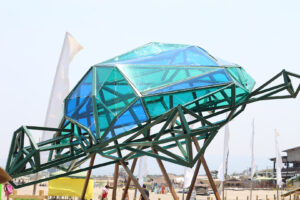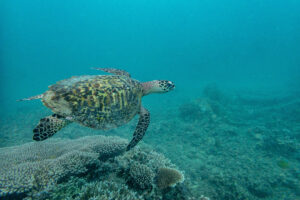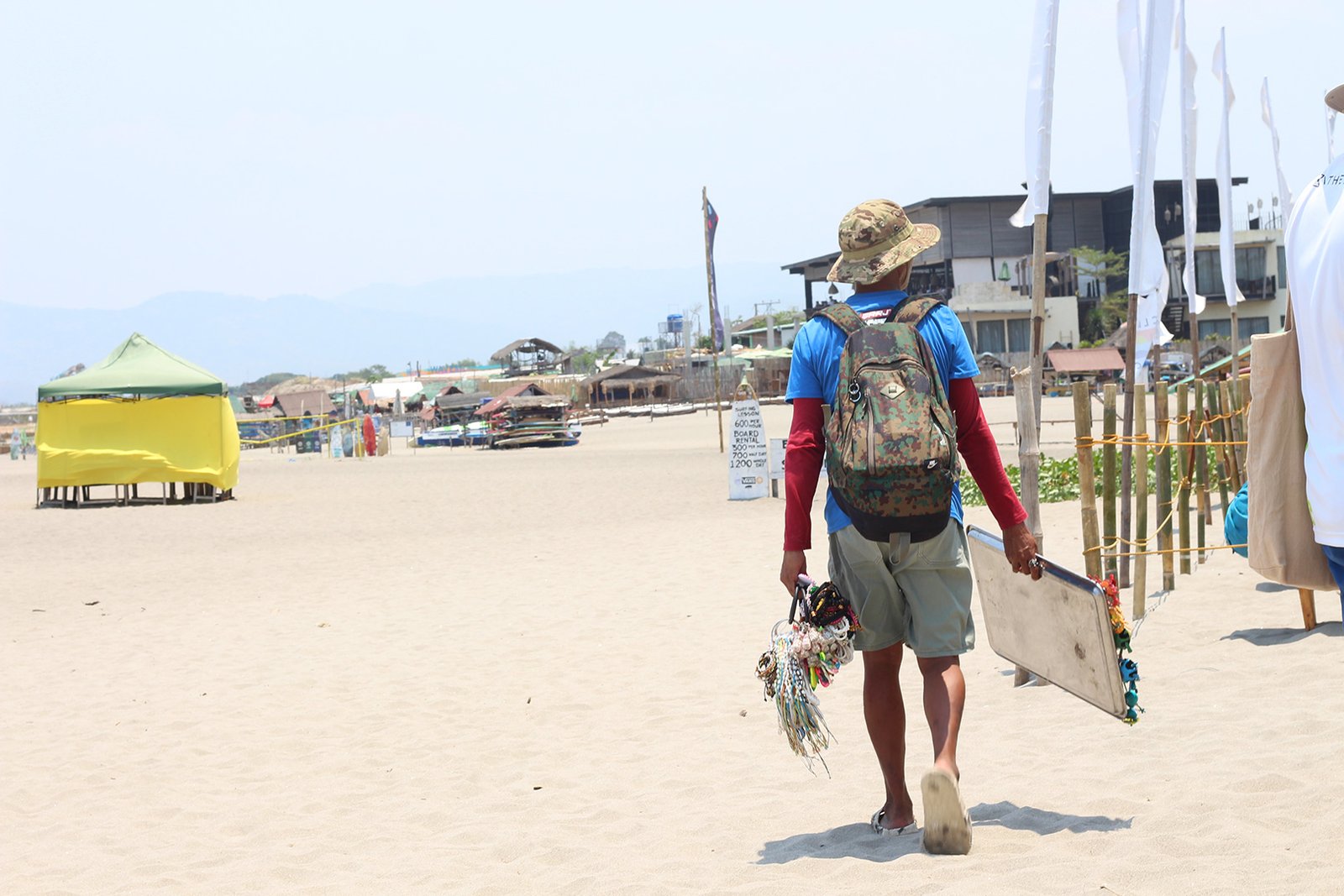by Patricia Mirasol, Producer
Community engagement matters when it comes to fostering a sustainable economy, according to Riza Joy A. Abat, municipal environment and natural resources officer designate of San Juan, La Union, a province frequented by surfers and beachgoers alike.
The local government does its part in community awareness – but the community has a bigger role, she said in an interview on April 22.
“If you’re a tourist, you become part of that local community for some time, and [thus] contribute to its sustainable development, as well as the preserving of its environment,” she said in the sidelines of the Pawi-CAN Sustainability Project launch of Athena, an executive assistant firm.

San Juan has beach marshals and beach cleaners, but “it may not be sufficient if tourists don’t care about their impact to the environment,” Ms. Abat told BusinessWorld.
“Without awareness embedded, it’s difficult to manage tourism areas,” she added.
“Pawi-CAN”

Athena partnered with La Union’s local government to deploy turtle-shaped bins in the Urbiztondo, San Juan areas patronized by tourists and remote workers.
Designed by visual artist John Parmisano, the turtle bins are part of the Pawi-CAN Sustainability Project, which aims to promote responsible garbage disposal and environmental protection.
The April 22 launch also had a coral reef planting workshop facilitated by EcoSurf.
“This is a sustained effort that will be there for six months,” said Glenn Anthony Chua, Athena’s marketing director, in a separate interview. “After, it will break into smaller Pawi-CANS…this is not a one-and-done activity.”
Updates will be posted on the progress of coral propagation, as well as how many bottles have been collected by the bins, Mr. Chua said.
Other partners of the project are the San Juan Resort and Hotel Association Inc (SJRRHASS), Urbiz Garden, Dragon 8 Junkshop, ECOSURF Program Fostering Education and Environmental Development Inc (FEED, INC), Coastal Underwater Resource Management Actions (CURMA), and La Union Soul.
Caring for the “locals”

San Juan may be the surfing capital of the northern part of Luzon, said Ms. Abat, but it’s also home to pawikans – sea turtles that promote the ocean’s health and biodiversity – whom residents call “locals.”
All marine turtles are protected pursuant to the Wildlife Resources Conservation and Protection Act (Republic Act No. 9417) of 2001, also known as the Philippine Wildlife Act.
“May instances when pawikans go to…nest and dinadagsa sila ng tourists. Nase-stress ang mga pawikans, at bumabalik na lang sila sa dagat (When tourists mill about the pawikans when they go to nest, the turtles get so stressed they end up going back to the ocean instead),” Ms. Abat said.
The Pawi-CAN shoots two birds with one stone, she said.
“It’s solid waste management plus educating them about the pawikan,” she added. “People will ask… and the locals can [spread awareness] about these endangered species.”










